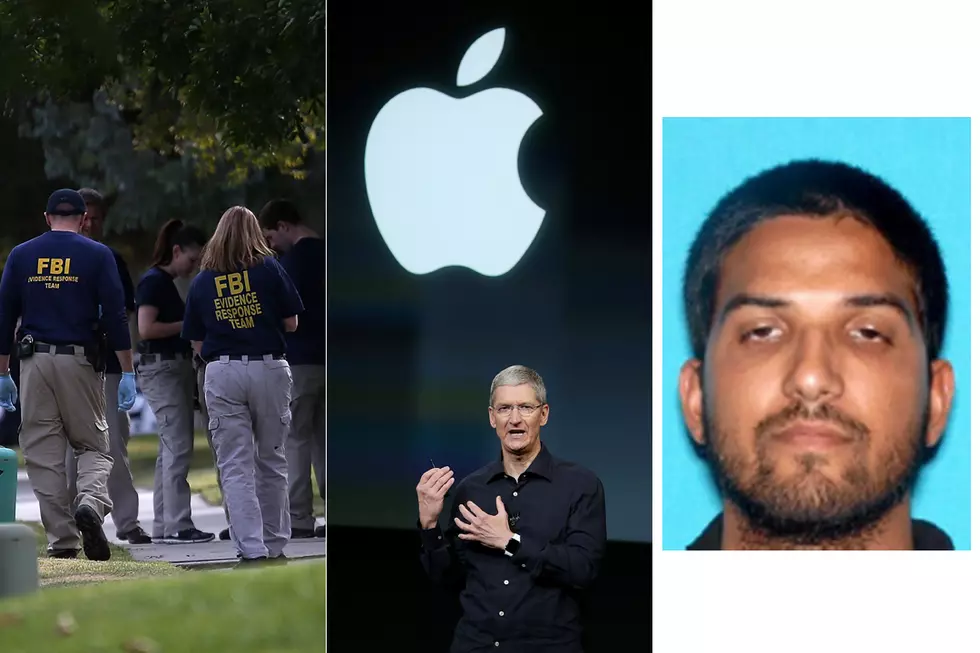
FBI and Apple Locked in Battle Over San Bernardino Shooter’s iPhone
https://youtu.be/n90jJMy73H4
The Federal Bureau of Investigation, America's top domestic law enforcement agency, and Apple Inc., one of the world's most valuable and popular companies, are currently waging a high-stakes legal battle over a single device: the iPhone used by Syed Rizwan Farook, the man killed by police after he and his wife murdered 14 people in San Bernardino, California, in December.
At issue is an order issued Tuesday by a federal magistrate judge instructing Apple to bypass security provisions on the phone to "unlock" it, thus allowing the FBI access to information stored on the phone, possibly including terrorist ties the shooters may have had. Apple is resisting this demand, stating that its customers' electronic privacy is paramount here. In 2014 Apple began installing encryption software on its products designed to prevent exactly this kind of third-party access.
Apple CEO Tim Cook explained his company's reasoning in a letter to its customers published online Tuesday:
...Opposing this order is not something we take lightly. We feel we must speak up in the face of what we see as an overreach by the U.S. government.
We are challenging the FBI’s demands with the deepest respect for American democracy and a love of our country. We believe it would be in the best interest of everyone to step back and consider the implications.
While we believe the FBI’s intentions are good, it would be wrong for the government to force us to build a backdoor into our products. And ultimately, we fear that this demand would undermine the very freedoms and liberty our government is meant to protect.
The FBI insists it only wants access to this particular phone's data, that that is the extent of its investigation and, thus, Apple should comply without fear of compromising its products or its customers' privacy. Agents have been trying to open the phone, but they fear any further attempts to bypass its initial passcode could activate the phone's auto-erase function -- one of multiple security steps designed to protect iPhone users against thieves stealing their data.
Other tech companies in Silicon Valley, including Google, Twitter and Microsoft, have largely supported Apple's position, while most politicians and law enforcement leaders stand behind the FBI in this latest update in the security-vs.-privacy debate. The battle here may end up at the Supreme Court if the two sides continue to be unable to reach an agreement.
More From 93.7 WBLK

![10 Barn Weddings You Can Have in Western New York [LIST]](http://townsquare.media/site/10/files/2016/05/Barn-Weddings-Getty.jpg?w=980&q=75)
![Look Where Buffalo Ranks in Top 10 Tailgate Cities [LIST]](http://townsquare.media/site/10/files/2015/10/Buffalo-Bills-Tailgating.png?w=980&q=75)
![The 6 Most Infamous Serial Killers From Buffalo and WNY! [List]](http://townsquare.media/site/11/files/2016/03/Police-Tape.jpg?w=980&q=75)

![The 6 Most Infamous Serial Killers From Buffalo and WNY! [List]](http://townsquare.media/site/11/files/2016/03/Police-Tape.jpg?w=980&q=75)



